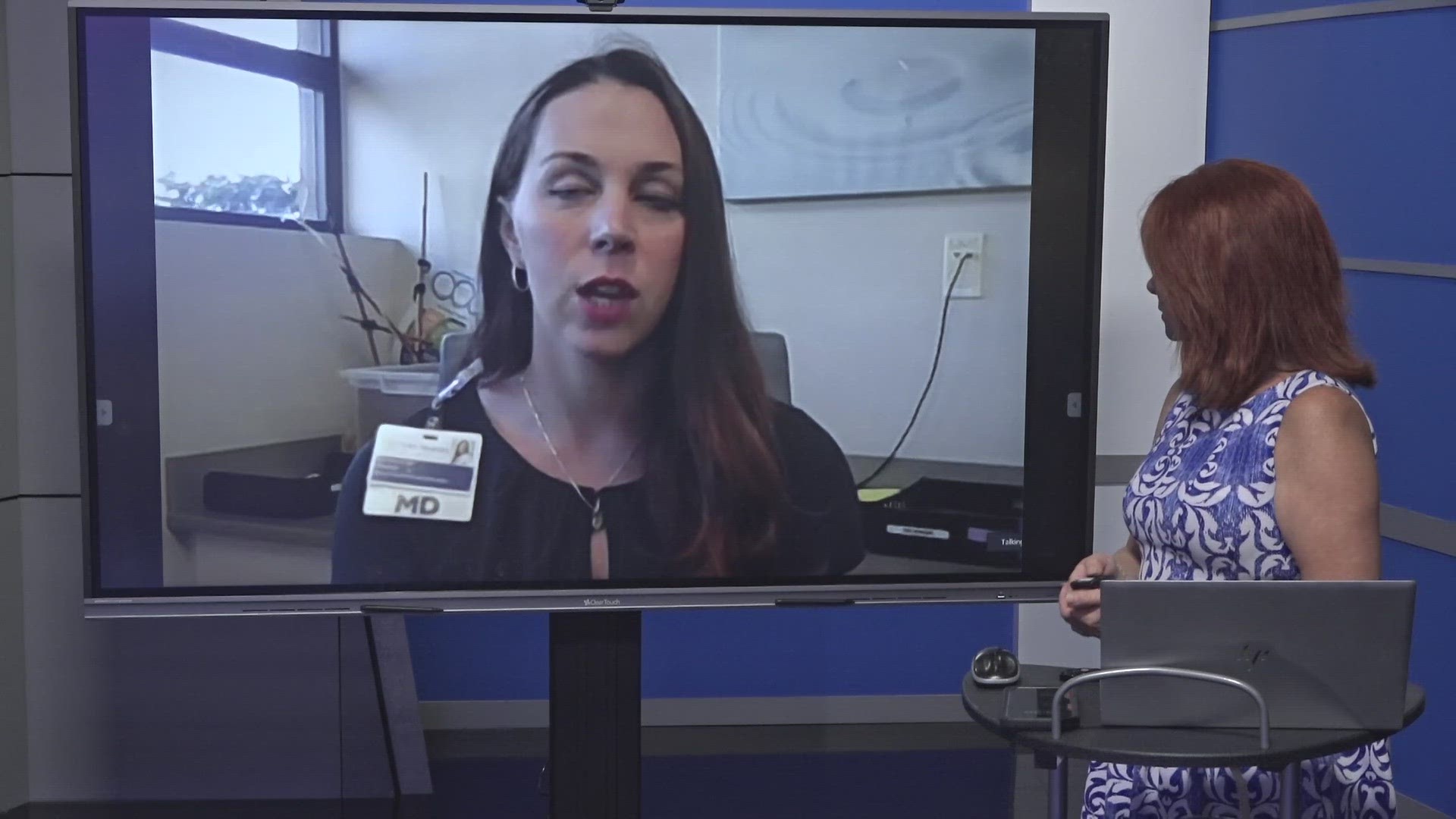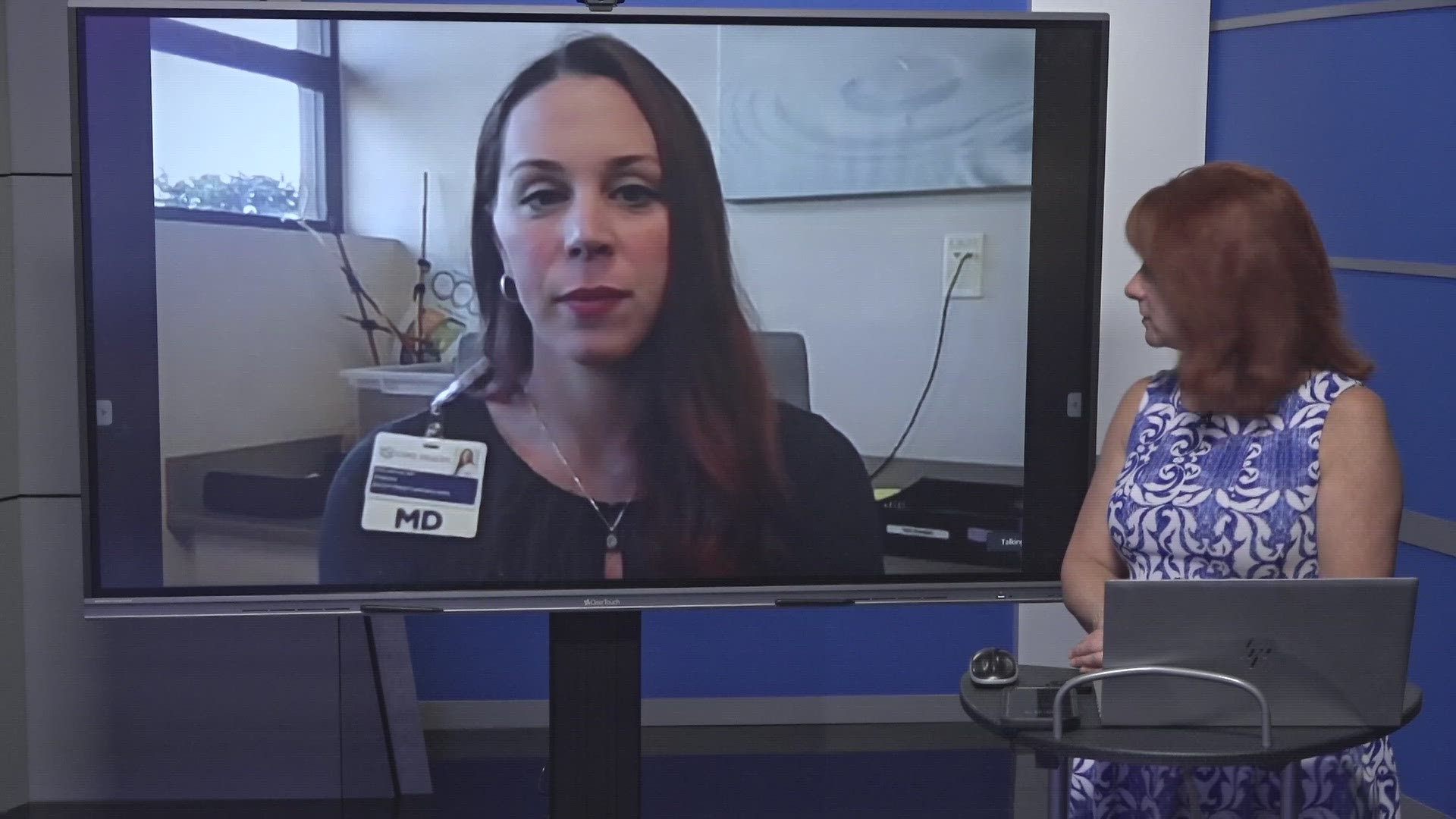GREENSBORO, N.C. — Losing weight can be an important step for leading a healthier and more active life. But, it is challenging.
WFMY News 2 spoke with Dr. Alex Ukleja with Cone Health Healthy Weight & Wellness to discuss some helpful pointers.
What are the health benefits of maintaining a healthy weight?
"Keeping pretty much all chronic medical diseases you may have really in check. It's really the maintenance that we're after to keep that where it's controlled, and that tends to be the most difficult part for most patients. "
What are the first steps you should take to get started losing weight?
"First is just start becoming more aware of the habits that you have some of the reasons that we eat or the habits that set you up to eat. Maybe restaurants you all go to or schedule that your family adheres to what foods do you like? What foods do you not like? That is very helpful for when you come to a clinic like ours to help us set you up with an eating plan that's really personalized."
When it comes to healthy eating, what should a healthy, balanced diet include?
Dr. Ukleja mentioned that no one answer would suit everyone.
"I would say a healthy balanced diet incorporates, you know, whole grains, protein sources, vegetables and a little bit of indulgence because you can't cut out those things forever and expect to not then have a relapse into that unhealthy eating pattern."
How vital is regular physical activity for sustainable weight loss, and what should that look like? How much, how often?
"Activity is super important, especially when it comes to weight-loss maintenance. Activity is the only way to get active muscle engagement and muscle engagement or muscle mass retention is the only way to maintain a metabolism, which is really then the only way to maintain weight loss."
"What I generally tell patients is we should be aiming for 150 to 300 minutes of moderate to vigorous activity per week," said Dr. Ukleja.
What role does managing stress or sleep have in weight loss efforts?
"Unfortunately stress then elicits us to release stress hormones, one of those being cortisol, which physiologically then impacts both our blood sugar usage and regulation, and that then drives most people to do some sort of stress eating or have a higher carb drive, which then elicits us to intake more carbohydrate, which plays a role into that insulin resistance or prediabetes most patients struggle with."
How quickly can someone expect to see progress on their weight loss journey through lifestyle changes - what are realistic expectations? And what should they focus on (amount of weight lost or something else)?
"Our expectations here are really one to two pounds per week at most, and it really is based on the engagement of the patient and how compliant they are with the changes we're trying to elicit."
What tips do you have for staying motivated and sticking to lifestyle changes long-term?
Dr. Ukleja said patients should put more focus on the things they have done well rather than the things they haven't.
"Let's say six months prior before you started on this journey, and it's acknowledging those changes, which helps elicit that positive reinforcement of 'Oh yeah, I have done this.'"
When should someone consider weight loss medications, and what are their risks and benefits?
"I would say if you're someone who feels like you've tried everything and you're still stuck. That is where weight loss medication really plays such a great role because it gives you the ability that you didn't have before to see that scale change."
Quick Links:


